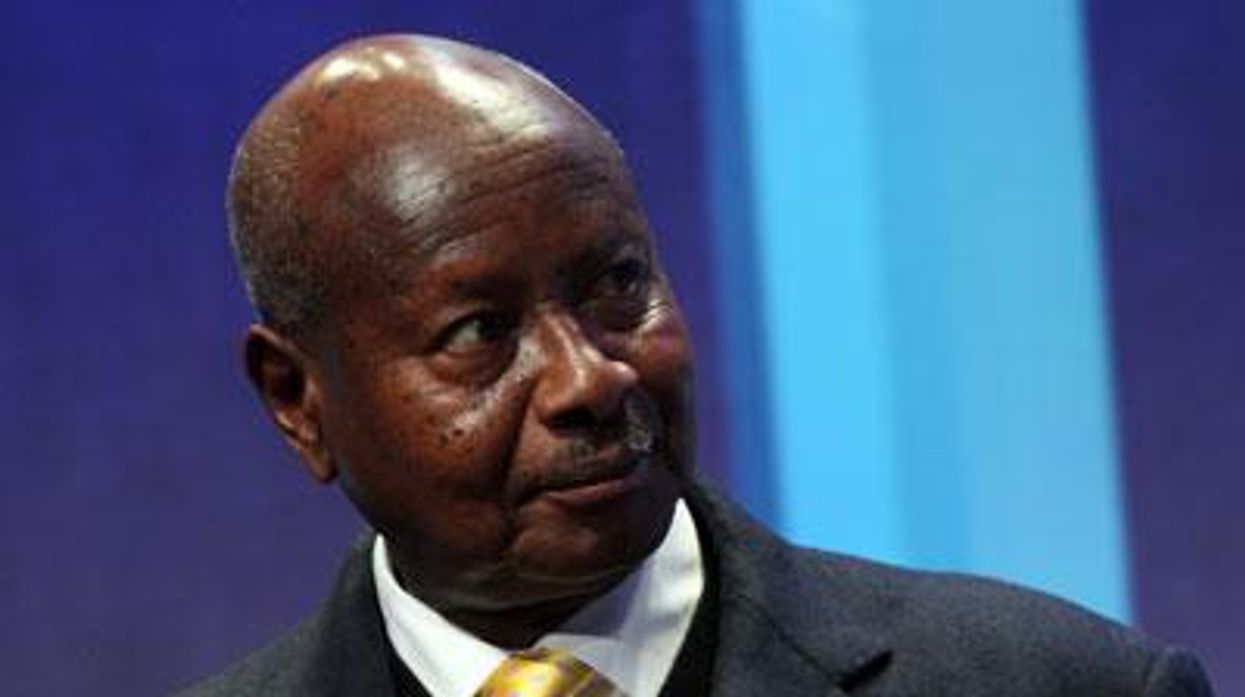Uganda's president still hasn't signed the country's hastily passed Anti-Homosexuality Bill, which would impose lifelong prison sentences on LGBT people and up to five years in prison for anyone who does not report a "known homosexual" to police.
But the bill could be returned to Parliament for revision, and it's unclear from local reports in Uganda if the president has formally rejected the bill or just condemned the haphazard way Parliament approved the legislation in December.
President Yoweri Museveni blasted the possibly illegal way the bill was pushed through Parliament on December 20, when Speaker of Parliament Rebecca Kadaga took a vote on the bill without enough MPs present to establish a quorum.
LGBT activists in Uganda noted that an eight-page letter Museveni sent to Speaker Kadaga on December 28, made public Friday in Uganda's leading independent newspaper, the Daily Monitor, does not amount to a formal rejection of the bill.
Pepe Julian Onziema, a Ugandan trans man who serves as advocacy and policy officer for the country's leading LGBT organization, Sexual Minorities Uganda, posted on Twitter shortly after the Monitor story announced that the president had "blocked" the bill.
"OMG! I don't know whether to protest being called 'abnormal' and 'sexually starved' or rejoice that #AHB may go away," Onziema tweeted Friday.
Responding to another Twitter user's question as to whether Museveni had actually blocked the bill, Onziema tweeted, "He may block it but he's strengthening the stigma towards lesbians. Dangerous choice of words if u ask me." A few hours later, Onziema added that the president's letter is "merely acknowledgement and expression of his views, not precisely blocking the bill."
The president's letter blasted Speaker Kadaga's singular focus in attempting to pass the bill without enough members of Parliament present to legally do so.
"How can you pass law without the quorum of Parliament after it has been pointed out?" wrote Museveni in the letter. "What sort of Parliament is this? How can Parliament be the one to break the Constitution and the law repeatedly?"
Although Museveni refused to sign the bill, he stopped short of affirming the humanity of LGBT people, whose identities are already illegal under Ugandan law.
"The question at the core of the debate of homosexuality is; what do we do with an abnormal person?" said the president, according to the Monitor. "Do we kill him/her? Do we imprison him/her? Or we do contain him/her?"
The president suggested that LGBT people can be "cured" of their "abnormality" and took issue with Western ideals that suggest homosexuality or bisexuality are legitimate alternative sexual orientations.
"You cannot call an abnormality an alternative orientation," Museveni said. "It could be that the Western societies, on account of random breeding, have generated many abnormal people."
Museveni said those LGBT people who aren't the result of "random breeding" were likely recruited into being gay for "mercenary reasons," or become gay as a result of financial hardship. Lesbians, Museveni contended, exist because of "sexual starvation" when they remain unmarried.
"Even with legislation, they will simply go underground and continue practicing homosexuality or lesbianism for mercenary reasons," Museveni said.
Calling homosexuality a "disgusting behavior," the president did say he would support a life imprisonment sentence for someone who "lures" a young person into the "lifestyle."
Even if Museveni ultimately vetoes the bill, LGBT activists in Uganda are worried there is enough support in parliament to override the president's veto with a two-thirds vote in favor of the draconian legislation.





































































Charlie Kirk DID say stoning gay people was the 'perfect law' — and these other heinous quotes